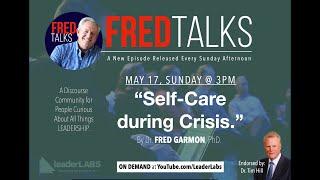This is an audio version of the Wikipedia Article:
https://en.wikipedia.org/wiki/Environmentalism
00:02:02 1 Definitions
00:03:29 2 History
00:05:19 2.1 Early environmental legislation
00:09:28 2.2 First environmental movements
00:18:19 2.3 Post-war expansion
00:23:01 2.4 21st century and beyond
00:24:09 2.5 New forms of ecoactivism
00:26:28 3 Environmental movement
00:27:38 3.1 Free market environmentalism
00:28:08 3.2 Evangelical environmentalism
00:28:50 3.3 Preservation and conservation
00:29:27 4 Organisations and conferences
00:31:58 5 Environmental protests
00:32:12 6 Environmentalists
00:32:27 6.1 Assassinations
00:33:10 7 In popular culture
00:36:09 8 An alternative view
Listening is a more natural way of learning, when compared to reading. Written language only began at around 3200 BC, but spoken language has existed long ago.
Learning by listening is a great way to:
- increases imagination and understanding
- improves your listening skills
- improves your own spoken accent
- learn while on the move
- reduce eye strain
Now learn the vast amount of general knowledge available on Wikipedia through audio (audio article). You could even learn subconsciously by playing the audio while you are sleeping! If you are planning to listen a lot, you could try using a bone conduction headphone, or a standard speaker instead of an earphone.
Listen on Google Assistant through Extra Audio:
https://assistant.google.com/services/invoke/uid/0000001a130b3f91
Other Wikipedia audio articles at:
https://www.youtube.com/results?search_query=wikipedia+tts
Upload your own Wikipedia articles through:
https://github.com/nodef/wikipedia-tts
Speaking Rate: 0.89027740476477
Voice name: en-AU-Wavenet-C
"I cannot teach anybody anything, I can only make them think."
- Socrates
SUMMARY
=======
Environmentalism or environmental rights is a broad philosophy, ideology, and social movement regarding concerns for environmental protection and improvement of the health of the environment, particularly as the measure for this health seeks to incorporate the impact of changes to the environment on humans, animals, plants and non-living matter. While environmentalism focuses more on the environmental and nature-related aspects of green ideology and politics, ecology combines the ideology of social ecology and environmentalism. Ecology is more commonly used in continental European languages while ‘environmentalism’ is more commonly used in English but the words have slightly different connotations.
Environmentalism advocates the preservation, restoration and/or improvement of the natural environment and critical earth system elements or processes such as the climate, and may be referred to as a movement to control pollution or protect plant and animal diversity. For this reason, concepts such as a land ethic, environmental ethics, biodiversity, ecology, and the biophilia hypothesis figure predominantly.
At its crux, environmentalism is an attempt to balance relations between humans and the various natural systems on which they depend in such a way that all the components are accorded a proper degree of sustainability. The exact measures and outcomes of this balance is controversial and there are many different ways for environmental concerns to be expressed in practice. Environmentalism and environmental concerns are often represented by the colour green, but this association has been appropriated by the marketing industries for the tactic known as greenwashing.
Environmentalism is opposed by anti-environmentalism, which says that the Earth is less fragile than some environmentalists maintain, and portrays environmentalism as overreacting to the human contribution to climate change or opposing human advancement.
https://en.wikipedia.org/wiki/Environmentalism
00:02:02 1 Definitions
00:03:29 2 History
00:05:19 2.1 Early environmental legislation
00:09:28 2.2 First environmental movements
00:18:19 2.3 Post-war expansion
00:23:01 2.4 21st century and beyond
00:24:09 2.5 New forms of ecoactivism
00:26:28 3 Environmental movement
00:27:38 3.1 Free market environmentalism
00:28:08 3.2 Evangelical environmentalism
00:28:50 3.3 Preservation and conservation
00:29:27 4 Organisations and conferences
00:31:58 5 Environmental protests
00:32:12 6 Environmentalists
00:32:27 6.1 Assassinations
00:33:10 7 In popular culture
00:36:09 8 An alternative view
Listening is a more natural way of learning, when compared to reading. Written language only began at around 3200 BC, but spoken language has existed long ago.
Learning by listening is a great way to:
- increases imagination and understanding
- improves your listening skills
- improves your own spoken accent
- learn while on the move
- reduce eye strain
Now learn the vast amount of general knowledge available on Wikipedia through audio (audio article). You could even learn subconsciously by playing the audio while you are sleeping! If you are planning to listen a lot, you could try using a bone conduction headphone, or a standard speaker instead of an earphone.
Listen on Google Assistant through Extra Audio:
https://assistant.google.com/services/invoke/uid/0000001a130b3f91
Other Wikipedia audio articles at:
https://www.youtube.com/results?search_query=wikipedia+tts
Upload your own Wikipedia articles through:
https://github.com/nodef/wikipedia-tts
Speaking Rate: 0.89027740476477
Voice name: en-AU-Wavenet-C
"I cannot teach anybody anything, I can only make them think."
- Socrates
SUMMARY
=======
Environmentalism or environmental rights is a broad philosophy, ideology, and social movement regarding concerns for environmental protection and improvement of the health of the environment, particularly as the measure for this health seeks to incorporate the impact of changes to the environment on humans, animals, plants and non-living matter. While environmentalism focuses more on the environmental and nature-related aspects of green ideology and politics, ecology combines the ideology of social ecology and environmentalism. Ecology is more commonly used in continental European languages while ‘environmentalism’ is more commonly used in English but the words have slightly different connotations.
Environmentalism advocates the preservation, restoration and/or improvement of the natural environment and critical earth system elements or processes such as the climate, and may be referred to as a movement to control pollution or protect plant and animal diversity. For this reason, concepts such as a land ethic, environmental ethics, biodiversity, ecology, and the biophilia hypothesis figure predominantly.
At its crux, environmentalism is an attempt to balance relations between humans and the various natural systems on which they depend in such a way that all the components are accorded a proper degree of sustainability. The exact measures and outcomes of this balance is controversial and there are many different ways for environmental concerns to be expressed in practice. Environmentalism and environmental concerns are often represented by the colour green, but this association has been appropriated by the marketing industries for the tactic known as greenwashing.
Environmentalism is opposed by anti-environmentalism, which says that the Earth is less fragile than some environmentalists maintain, and portrays environmentalism as overreacting to the human contribution to climate change or opposing human advancement.
Be the first to comment













